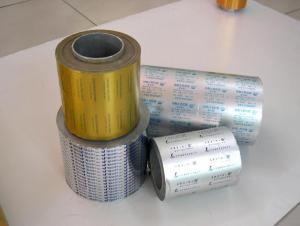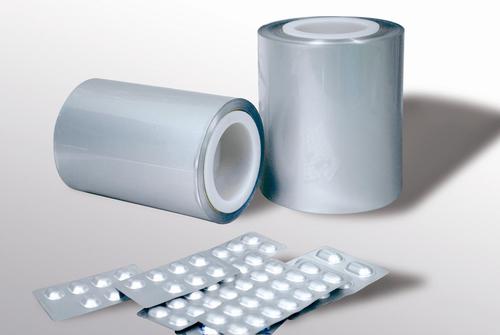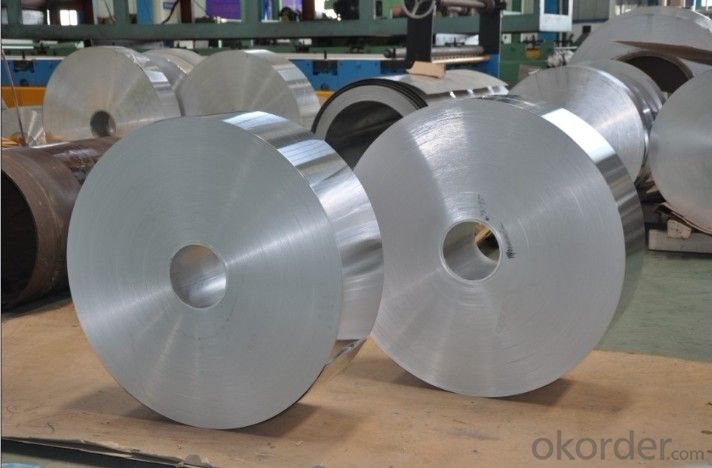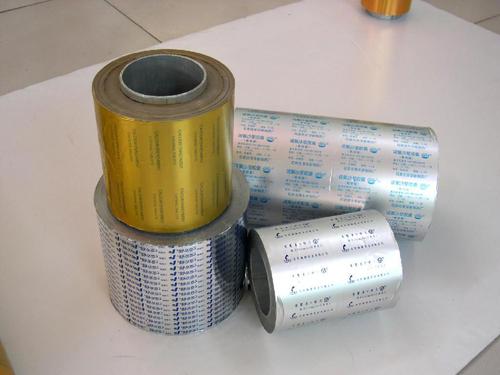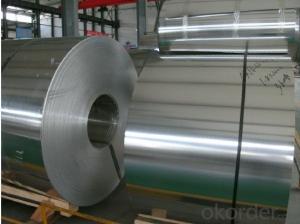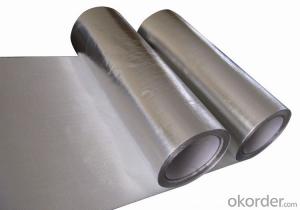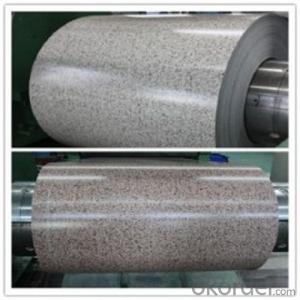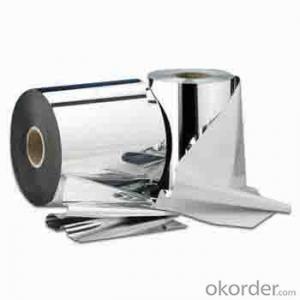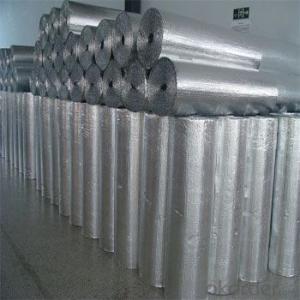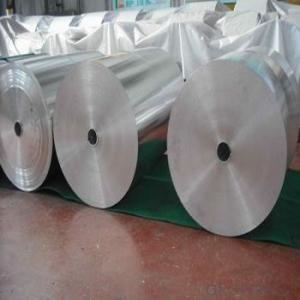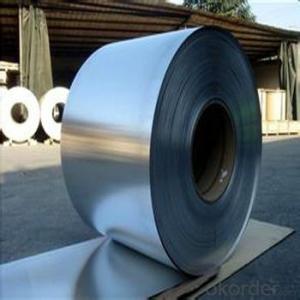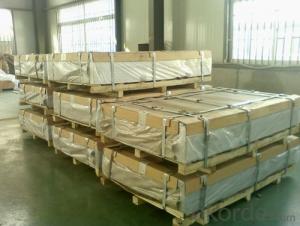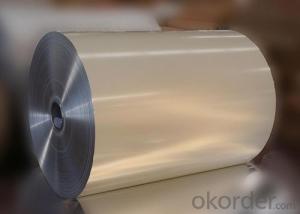6001 Aluminum Coil High Quality Ptp Aluminum Foil Cold Forming Foil Alu-Alu Foil 8006, 8011, 8079
- Loading Port:
- Shanghai
- Payment Terms:
- TT or LC
- Min Order Qty:
- 5 m.t.
- Supply Capability:
- 9000 m.t./month
OKorder Service Pledge
Quality Product, Order Online Tracking, Timely Delivery
OKorder Financial Service
Credit Rating, Credit Services, Credit Purchasing
You Might Also Like
Product Description
Item | Parameters |
| Color | White,Black,Red,Bule,Green,Yellow,Gold,Silver and so on |
| Thickness | 0.6mm |
| Width | 6cm,6.8cm,8.8cm,9cm,10.8cm,11cm |
| Strength | Good Flexibility |
| Type | Aluminum Stripe |
| Usage | Advertisement Sign Making |
| Packaging | Carton Box |
| Special | Waterproof Tapes |
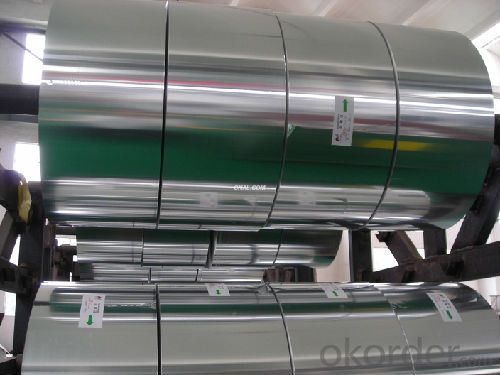
Applications:
This kind of arcylic front light LED letter sign Ideal for:
1. Shops;
2. Business;
3. Hotel;
4.Auto dealers;
5.Hospitals;
6.School
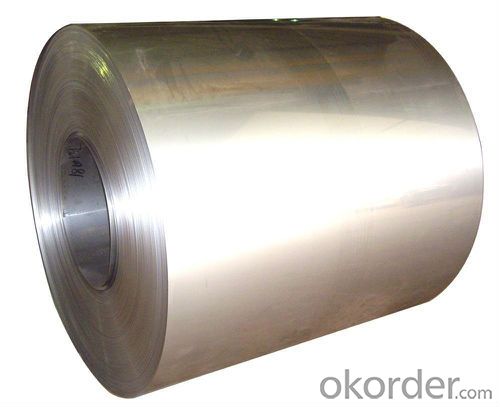
Our Services
1. All inquires will be replied within 8 hours. 7D/24H service. Pls feel free to contact us with E-mail or TM.
2. A trial order or sample orders are also welcome.
3. Strong technical team and professional sales.
4. 7-25 working days for different quantity, depending on what signs you want to customize.
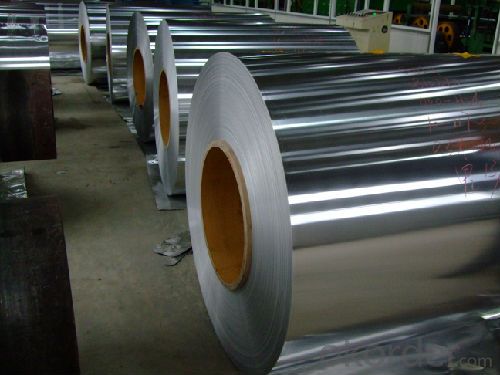
- Q: How do aluminum coils contribute to energy-efficient lighting installations?
- Aluminum coils play a significant role in enhancing the energy efficiency of lighting installations. Firstly, aluminum is a highly conductive material that efficiently transfers heat away from the lighting system. This prevents the accumulation of heat, which can diminish the performance and lifespan of the lighting fixtures. By dissipating heat effectively, aluminum coils help maintain optimal operating temperatures, ensuring the lights operate at their highest efficiency. Furthermore, aluminum coils are lightweight, making them easier to handle and install. This reduces the overall weight of the lighting fixtures, making them more convenient to mount and manipulate during installation. The reduced weight also translates into lower energy consumption during transportation and installation, ultimately contributing to energy efficiency in the long run. In addition, aluminum coils are highly durable and resistant to corrosion, which is crucial for lighting installations exposed to various environmental conditions. This durability minimizes the need for frequent replacements or repairs, reducing energy consumption associated with maintenance. Moreover, aluminum is a recyclable material, meaning that the coils can be easily reused or repurposed at the end of their life cycle. Recycling aluminum requires significantly less energy compared to producing new aluminum, resulting in a reduced carbon footprint and lower energy consumption overall. Overall, aluminum coils offer numerous benefits in terms of energy efficiency for lighting installations. Their efficient heat dissipation, lightweight nature, durability, and recyclability contribute to optimized performance, reduced energy consumption, and a more sustainable lighting solution.
- Q: Is it safe to use aluminum foil to wrap food for cooking purposes?
- <p>Yes, you can use aluminum foil to wrap food for cooking. Aluminum foil is commonly used for wrapping, baking, and cooking food in the oven, grill, or on the stovetop. It helps retain moisture, prevents food from sticking, and can be used to create a sealed environment for steaming or baking. However, it's important to avoid using aluminum foil at very high temperatures as it can react with acidic or alkaline foods and potentially leach aluminum into the food. Always follow the manufacturer's guidelines for safe use and cooking temperatures.</p>
- Q: Are aluminum coils suitable for electrical transformers?
- Yes, aluminum coils are suitable for electrical transformers. Aluminum is a lightweight and cost-effective material that offers several advantages for transformer construction. It has excellent electrical conductivity, comparable to copper, which allows for efficient power transfer. Additionally, aluminum coils have lower resistance than copper coils, resulting in reduced power losses and improved energy efficiency. The use of aluminum coils in transformers also contributes to weight reduction, making them easier to handle and transport. However, aluminum coils require larger cross-sections compared to copper coils due to their slightly lower conductivity. This means that transformers using aluminum coils may be slightly larger in size. Overall, aluminum coils are a viable and widely used alternative to copper coils in electrical transformers, offering cost savings, high conductivity, and improved energy efficiency.
- Q: Can aluminum coils be used in water treatment plants?
- Yes, aluminum coils can be used in water treatment plants. Aluminum is a corrosion-resistant metal that is widely used in various industrial applications, including water treatment. Aluminum coils are often used in heat exchangers and condensers, where they help transfer heat efficiently. In the context of water treatment plants, aluminum coils can be used in several processes. For example, they can be utilized in cooling towers to remove heat from the water by circulating it over the coils. The aluminum coils facilitate the transfer of heat from the water to the surrounding air, cooling it down in the process. Additionally, aluminum coils can be used in the construction of evaporators, where they aid in the evaporation of water during the treatment process. The coils are typically designed to have a large surface area, maximizing the contact between the water and the aluminum surface, which enhances the evaporation efficiency. Furthermore, aluminum coils can also be employed in the construction of air handling units (AHUs) in water treatment plants. AHUs help control the temperature, humidity, and air quality in the facility. Aluminum coils play a crucial role in AHUs by cooling or heating the air passing through them, contributing to the overall efficiency of the system. It is worth mentioning that the compatibility of aluminum with the specific water being treated is an important consideration. Some waters, such as those with low pH or high levels of certain chemicals, can cause corrosion or chemical reactions that may affect the performance or durability of aluminum coils. Therefore, it is crucial to assess the water composition and consult with experts or manufacturers to ensure the suitability of aluminum coils for a particular water treatment application.
- Q: My budgies took at bath in an aluminum pie tin today. At first they bit it just because it was their first time. Should I be worried that they might get poisoned?
- Nah, when I was a baby I took baths in aluminum pie tins all the time.
- Q: Is it possible to construct furniture or tables using aluminum coils?
- <p>Yes, aluminum coils can be used to make furniture or tables. Aluminum is a versatile material known for its strength, durability, and lightweight properties. It can be easily bent and shaped into various forms, making it suitable for furniture construction. Aluminum coils can be used to create the frame or support structure of tables and other furniture items. They are also resistant to corrosion and require minimal maintenance, making them a popular choice for outdoor furniture and modern interior designs.</p>
- Q: What are the different surface treatment options available for aluminum coils?
- There are several surface treatment options available for aluminum coils, each serving different purposes and providing unique benefits. Some of the commonly used surface treatment options include: 1. Anodizing: Anodizing is an electrochemical process that creates a protective oxide layer on the surface of the aluminum coil. This treatment enhances corrosion resistance, improves durability, and allows for coloring options. 2. Painting: Painting the aluminum coil provides an aesthetic finish while also protecting it from corrosion. The coil can be coated with various types of paints, such as polyester, epoxy, or polyurethane, depending on the desired appearance and level of protection required. 3. Powder Coating: Powder coating involves applying a dry powder to the aluminum coil's surface and then curing it with heat. This process creates a durable and attractive finish that is resistant to chipping, scratching, and fading. Powder coating also offers a wide range of color options and can be used in various applications. 4. Brushing: Brushing the aluminum coil creates a brushed or satin finish with visible linear patterns. This treatment is commonly used for decorative purposes, giving the coil a unique and visually appealing appearance. 5. Laminating: Laminating involves bonding a protective layer, such as a PVC film or a polyester film, onto the surface of the aluminum coil. This treatment provides additional protection against scratches, abrasion, and UV radiation while also offering customization options. 6. Chemical Conversion Coating: Chemical conversion coating, also known as chromate conversion coating, involves applying a thin layer of chromate onto the aluminum coil's surface. This treatment enhances corrosion resistance, improves paint adhesion, and provides a base for subsequent painting or powder coating. It is important to choose the appropriate surface treatment option based on the specific requirements of the application, such as durability, corrosion resistance, aesthetics, and cost-effectiveness. Consulting with experts in the field can help determine the most suitable treatment option for aluminum coils.
- Q: Can aluminum coils be used in the production of aircraft fuel tanks?
- Yes, aluminum coils can be used in the production of aircraft fuel tanks. Aluminum is a lightweight and durable material that is commonly used in the aerospace industry due to its high strength-to-weight ratio. Its corrosion-resistant properties also make it an ideal choice for fuel tanks, as it can withstand the harsh conditions and chemicals found in aviation fuel. The use of aluminum coils allows for efficient manufacturing processes, as they can be easily formed and welded into the desired tank shape. Additionally, aluminum has excellent thermal conductivity, which helps dissipate heat generated during flight and prevents the fuel from overheating. Overall, aluminum coils are a suitable and widely-used material in the production of aircraft fuel tanks.
- Q: Foshan where there are high-quality aluminum and aluminum rolls for sale?
- If you know where to use, or what are the requirements of the words I can occasionally recommend you manufacturers give you, because I am in this industry!
- Q: Can aluminum coils be used in signage applications?
- Yes, aluminum coils can be used in signage applications. Aluminum is a popular material for signage due to its durability, lightweight nature, and resistance to corrosion. It can be easily formed into various shapes and sizes, making it suitable for different types of signage, including billboards, nameplates, and outdoor signs. Additionally, aluminum can be painted or laminated to achieve different visual effects and enhance the overall appearance of the signage.
Send your message to us
6001 Aluminum Coil High Quality Ptp Aluminum Foil Cold Forming Foil Alu-Alu Foil 8006, 8011, 8079
- Loading Port:
- Shanghai
- Payment Terms:
- TT or LC
- Min Order Qty:
- 5 m.t.
- Supply Capability:
- 9000 m.t./month
OKorder Service Pledge
Quality Product, Order Online Tracking, Timely Delivery
OKorder Financial Service
Credit Rating, Credit Services, Credit Purchasing
Similar products
Hot products
Hot Searches
Related keywords


